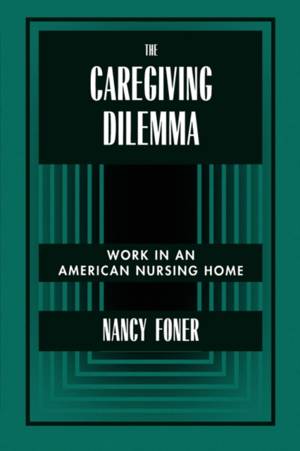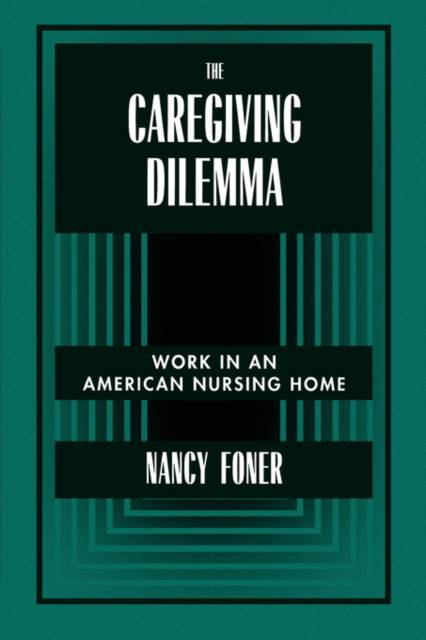
- Afhalen na 1 uur in een winkel met voorraad
- Gratis thuislevering in België vanaf € 30
- Ruim aanbod met 7 miljoen producten
- Afhalen na 1 uur in een winkel met voorraad
- Gratis thuislevering in België vanaf € 30
- Ruim aanbod met 7 miljoen producten
Zoeken
€ 50,95
+ 101 punten
Omschrijving
Along with increasing life expectancy comes the knowledge that many Americans will one day enter nursing homes. Who are the people who will care for us or for our relatives? Nancy Foner provides a major study of institutional care that focuses on nursing aides, who are the backbone of American nursing homes. She examines the strains and paradoxes facing nursing aides--asked, on the one hand, to provide compassionate care and, on the other, to cope with the pressures of the workplace and the institution.
Aides are expected to look after patients, who are predominantly older women, with kindness and consideration, but nursing home regulations and bureaucratic forces often hinder even the best efforts to offer consistently supportive care. Positioned at the bottom of the nursing hierarchy, aides must cope with the needs of frail, dependent residents, pressures from patients' relatives and from their own families, and demands of supervisors and coworkers.
Foner's detailed description and analysis of caregiving dilemmas, based on intensive field research in a New York facility, brings the perspective of the nursing aides to the fore. This is a timely contribution to the study of work, bureaucracy, and the future of an aging American population.
Aides are expected to look after patients, who are predominantly older women, with kindness and consideration, but nursing home regulations and bureaucratic forces often hinder even the best efforts to offer consistently supportive care. Positioned at the bottom of the nursing hierarchy, aides must cope with the needs of frail, dependent residents, pressures from patients' relatives and from their own families, and demands of supervisors and coworkers.
Foner's detailed description and analysis of caregiving dilemmas, based on intensive field research in a New York facility, brings the perspective of the nursing aides to the fore. This is a timely contribution to the study of work, bureaucracy, and the future of an aging American population.
Specificaties
Betrokkenen
- Auteur(s):
- Uitgeverij:
Inhoud
- Aantal bladzijden:
- 190
- Taal:
- Engels
Eigenschappen
- Productcode (EAN):
- 9780520203372
- Verschijningsdatum:
- 6/10/1995
- Uitvoering:
- Paperback
- Formaat:
- Trade paperback (VS)
- Afmetingen:
- 152 mm x 227 mm
- Gewicht:
- 285 g

Alleen bij Standaard Boekhandel
+ 101 punten op je klantenkaart van Standaard Boekhandel
Beoordelingen
We publiceren alleen reviews die voldoen aan de voorwaarden voor reviews. Bekijk onze voorwaarden voor reviews.








